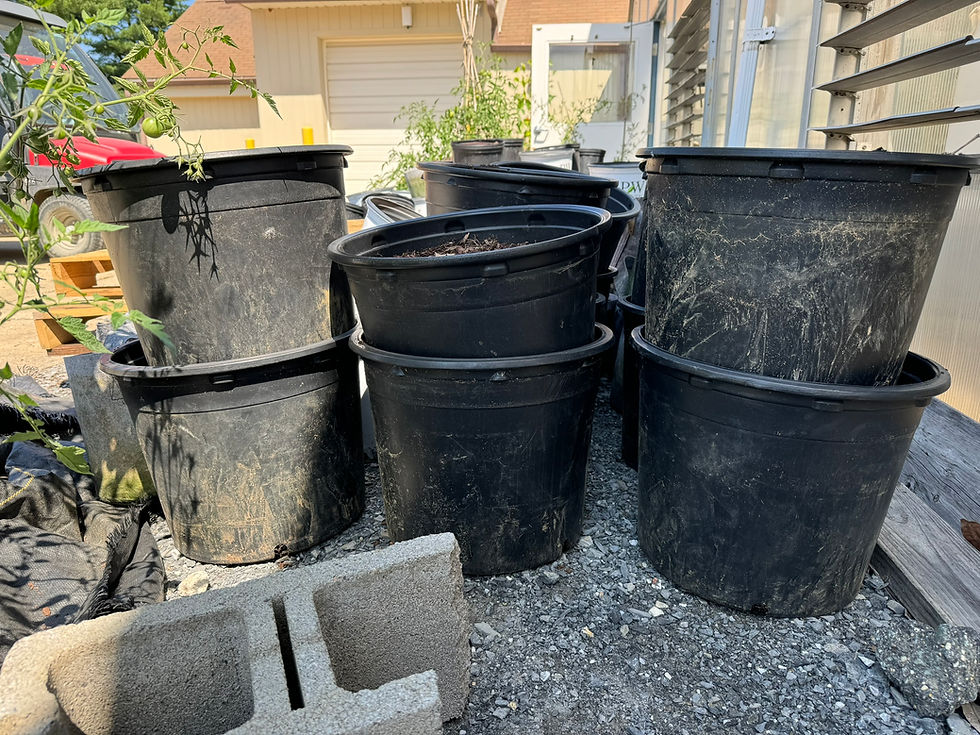Study Shows Microplastics Inhibit Plant Photosynthesis
- healthypotshealthy
- Jul 1, 2025
- 2 min read

Supporters of Healthy Pots, Healthy Planet already know the many negative aspects of plastic plant containers. Some of the top ones are:
They are often treated as single-use, ending up in landfills or worse;
They are made from petroleum, and their production contributes to global warming;
The toxins associated with petroleum-derived materials have direct impacts on humans and other species.
To this list we can add another serious concern, from a report published in the Proceedings of the National Academy of Sciences in March: evidence shows that microplastics (small plastic particles that come from the degradation of larger plastics) are reducing the efficiency of plant photosynthesis by as much as 7% to 12%. A team of scientists from Nanjing University, the Chinese Academy of Sciences and international collaborators has conducted a meta analysis synthesizing data from over 150 investigations, reaching this conclusion. The researchers warn that such a reduction in photosynthesis can cause a loss of sufficient food crops and result in starvation.
That’s alarming enough, but as a recent article in Garden Center Magazine pointed out, this also has implications for the horticulture industry and its reliance on plastic. For us, it raises the question, are plastic plant pots shedding microplastics into the soil, and contributing to the reduction in photosynthesis?
The study was about the effect on agriculture, and the potential for a diminished food supply. Thinking more broadly, however, it wouldn’t be only the human food supply; other species depend on plants for food and shelter, and would be just as vulnerable to starvation. If you are an ecological landscape designer, the plants you install may struggle to provide the benefits you hope for.
And then there are the other ecosystem services we receive from plants. In addition to the provisioning services, such as food, there are also regulating services, such as cleaning the air, filtering water, carbon storage and climate regulation. During photosynthesis, plants absorb carbon dioxide and release oxygen. What happens to the atmosphere if these processes are inhibited?
Abandoning the use of plastic plant pots is an understandably heavy lift for the green industry. Business models and practices are built on the durability and affordability of plastic. But the likely impact of impaired photosynthesis is a compelling argument for doing just that.

.png)


